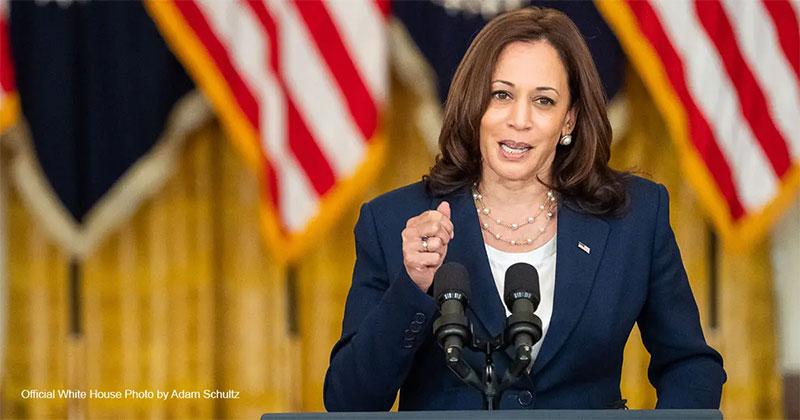
With the nation’s first post-Roe school year rapidly approaching, the pro-abortion lobby’s crosshairs are once again aimed at one of their favorite targets: female college students.
On August 8, Vice President Kamala Harris gathered the president of the American Council on Education and the presidents of eight colleges to discuss her concerns about how the Dobbs decision and the overturn of Roe v. Wade would impact college students. The participants of this meeting offer a vignette of the stunning ignorance that lies behind the Biden administration’s perspective on abortion; of the 10 participants, two were self-identifying lesbians and five were men.
In other words, the majority of voices present were men and women in same-sex partnerships that would never face an unexpected pregnancy. The rest were mothers who, with their indisputably successful careers, refuted the very idea that women cannot both succeed professionally and have children. If Kamala were serious about improving the lives of women who face unexpected pregnancies in college, why were their voices not represented at this meeting to explain the resources that mothers in this situation need to thrive?
Currently, there are five million undergraduate students who are either pregnant or parenting — a number that makes up more than a quarter of the entire student population. Out of every five black women in college, two are mothers. According to Lindsey Reichlen Cruse, a researcher at the Institute for Women’s Policy Research, “Student parents are driven to succeed for their children. … We know student parents have better GPAs than students without kids. They’re driven, they want to be there, and they want to graduate. If that’s not happening, it’s not because they don’t want it.”
Cruse’s research gets at the heart of the issues behind the college drop-out rate for student mothers. Roughly half of student parents drop out before earning their degrees due to the pressure of simultaneously pursuing their studies and parenthood without resources or support from their college or connecting with a pregnancy resource center. Nearly half of all student parents are also working full time to support their new families.
It is important to keep in mind that the causes of student parents dropping out are not the time constraints of pregnancy, but rather parenting and supporting their family. Student mothers want to keep their babies — but they are fighting an uphill battle against a society that tells them they are sacrificing their future if they do not kill their child, and an education landscape that has thus far failed to accommodate the needs of mothers.
The U.S. Department of Education’s recent proposed changes to the Title IX rule place killing an unborn child and raising an unborn child on morally equivalent ground. Aside from requiring lactation rooms (an accommodation that should have been made 48 years ago when Title IX first passed) the changes to this rule do nothing to ensure that universities embrace women in their totality — including their ability to be mothers.
Chief among the arguments that Harris’s team offered to explain why mothers in college need abortion was the disproportionate rate of sexual violence that college-aged women face. Of course, this point was not raised with the purpose of thinking through how to reduce the rates of sexual violence on campuses and lower the statistic of nearly two thirds of rapes going unreported, but rather with the intention to punish the unborn baby for the crimes of the father and allow the evidence that a rape occurred to be quietly erased at an abortion facility.
Furthermore, the available statistics of student parents who drop out are those who choose life for their baby and struggle to stay in school while parenting and providing. The abortion industry would love for mothers to forget that making an adoption plan for your unborn child is another way of being a good parent.
As colleges resist the push to facilitate abortions in campus health centers, what measures can they take to support their pregnant and parenting students? Measures like providing child care centers, financial aid and scholarships, deadline flexibility, justice for victims of sexual assault, and connecting students with local pregnancy resource centers can all help mitigate the additional challenges that parenting students face. At the very least, they could provide changing tables in each of the bathrooms. Rather than treating the non-pregnant female body as the expected standard, colleges can embrace the full range of female bodies and meet mothers where they are.
As a recent college graduate, I am not far removed from the difficulties and challenges of student life. I also know the amazing things that young women are capable of despite unexpected circumstances, especially when undergirded with the support and encouragement of a loving community. I pray that one day Harris — and other pro-abortion mothers — can open their eyes to the hypocrisy of telling the next generation of female leaders that they cannot succeed without sacrificing their own children.
--------------------------------
Joy Stockbauer is a policy analyst for the Center for Human Dignity at Family Research Council.
















